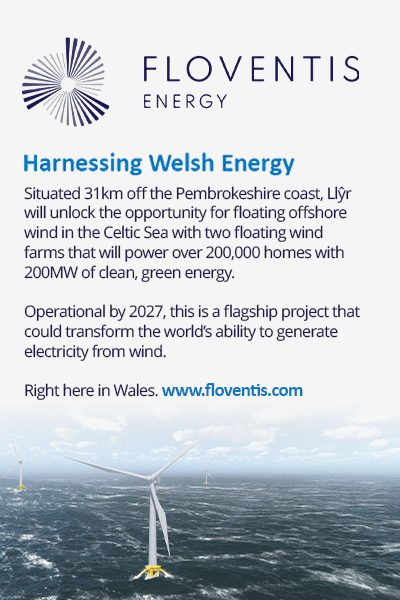Before a developer can begin the deployment of any offshore floating wind project, a lease needs to be granted, as only then can construction commence.
In terms of acquiring this consent, it can be a complex process that requires a skilled and experienced environmentalist consenting specialists from the developer perspective to provide robust data. This detailed information is then passed onto Natural Resources Wales’ own specialist consenting teams to evaluate and conclude.
There are currently over 20 developers scoping potential bids for development licensing in the Celtic Sea and all are requesting consenting documentation, even before they been successful or not.
The commercial mover’s v’s the Environmental Guardians
The developers want answers and progress, as after all, they want to deploy major investment into projects and move them forward at pace. They also argue that there is a need to hit NetZero and the quicker they can deploy, the sooner we will all have both cleaner and greener energy. They understandably see the consenting bodies as a barrier to progress.
From a helicopter view it’s a mess, and it seems that everyone is pointing fingers at each other.
The developers are wanting quick progress from NRW, who clearly don’t have enough qualified and experienced professionals on the ground to cope with the sheer amount of requests. On the flip side, the data that some developers are submitting is ‘not up to scratch’ and needs more guidance, in terms of what is expected from developers and what is urgently needed.
Clearly, this quality of data issue is making a slow, risk averse process extremely inefficient.
It is obvious that the partnership between the developer community and contenting teams needs to be better streamlined and made much more efficient, and that requires a process of improvement from all participants.
The imbalance it seems is also hindered by recruitment. If you are in the environmental consenting game, you are most certainly hot property. Do you work for the Government funded environmental protectors or do you work for the well paid ambitious commercial developer? Many graduates entering this space often cut their teeth in the consenting bodies and commonly move onto to work for the more attractive commercial sector. It’s a big problem that needs to be considered.
Tom Hill, Program Manager at Marine Energy Wales, spoke to me about the challenges facing both Natural Resources Wales and those in the development ecosystem.
A solution that has been put forward by many is around consenting data co-operation. The developers are very willing to invest in supporting the consenting bodies such as NRW. It’s a viable solution that with careful independence and transparency, could create a win-win for all.
Phil Johnston, Business Development Manager at Celtic Sea Power, feels that it’s a challenging space with limited experience and it’s unfair to be pointing the finger solely at the consenting bodies.
However, it’s not all bad news speaking to international specalists in the offshore floating wind sector. Other nations in this space are having a more challenging time than we are in Wales. Whilst we have challenges to overcome, it seems we are way ahead of the pack and other countries are having a much harder time maneuvering through the legislative minefield that is consent.
Furthermore, Simon Cheeseman from the Offshore Renewable Energy Catapult, explains the impact new innovative technology can have on improving the data collection process. Simon also explains how the Crown Estate are looking at how they can streamline the process further by providing data themselves, on behalf of developers.
What next? – Well it's clear everyone wants clean energy yesterday, and a spirt of co-operation and partnership is emerging. Bridging the commercial world with Government funded bodies is no easy feat, but if the right connectors are put in place, a marriage in the name of essential progress may well emerge.
If it doesn’t, the once in a generation opportunity that the Celtic Sea offers Wales and our ambition to decarbonise heavy industry will be delayed.
The sector is now awaiting the results of a deep dive report into the wider consenting issue which I am told will be available very soon.
A Beginners Guide to Consent Considerations:
Cultural Heritage and Archaeology – Are their shipwrecks or even unexploded objects from WWI & WWII known as Unexploded Ordnance (UXO) hazards.
Fish and Shellfish Ecology – Unlike conventional offshore wind, where export cables would be buried, floating offshore produces electro-magnetic fields (EMF) which are generated from cables deployed within the water between turbines. This could create underwater noise disturbance, loss and change to fish foraging, spawning and nursery habitats.
Marine Mammals and Turtles – Will there be any displacement effects or even a risk of entanglement in subsea infrastructure. For example, cables, mooring lines and lost equipment.
Ornithology (Birds) – Are there any consequences of a floating moving platform on bird behaviour such as collision risk; what if birds use floating foundations for roosting or increased feeding, or any other displacement effects.
Landscape and Seascape – Mainly visual presence on the seascape but with the Celtic Sea development zones out at sea, there is reduced visual impact of structures having an effect on communities.
Marine and Coastal Processes – These include any effect on seabed and marine water quality, effects from marine transport, effects on particular mobile bedforms and effects on suspended sediment concentrations.
Shipping and Navigation – Are there any consequences to the displacement of shipping routes or possible vessel collisions. What if structures break and equipment flows off site. Will there be any impact on a HM Coastguard search and rescue requirements.





